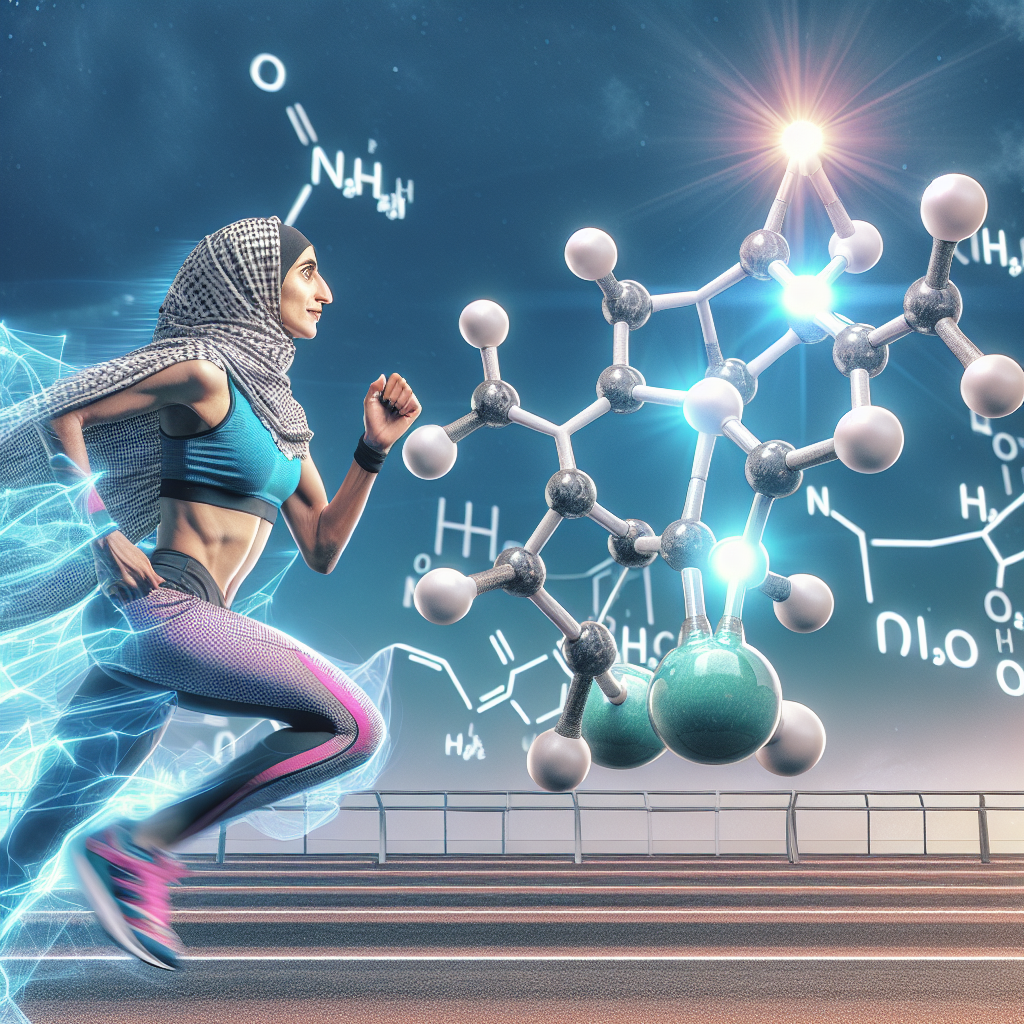-
Table of Contents
Enhancing Athletic Performance with Liraglutide Efficacy
Athletes are constantly seeking ways to improve their performance and gain a competitive edge. While training, nutrition, and genetics play a significant role, the use of pharmacological agents has also become increasingly prevalent in the world of sports. One such agent that has gained attention in recent years is liraglutide, a medication primarily used for the treatment of type 2 diabetes. However, research has shown that liraglutide may also have potential benefits for enhancing athletic performance. In this article, we will explore the pharmacokinetics and pharmacodynamics of liraglutide and its potential efficacy in improving athletic performance.
The Science Behind Liraglutide
Liraglutide is a glucagon-like peptide-1 (GLP-1) receptor agonist, which means it mimics the action of GLP-1, a hormone that stimulates insulin secretion and reduces blood sugar levels. It works by binding to GLP-1 receptors in the pancreas, liver, and brain, leading to increased insulin secretion, decreased glucagon secretion, and delayed gastric emptying. These actions help to regulate blood sugar levels and promote weight loss.
When taken as a medication, liraglutide is administered subcutaneously and has a half-life of approximately 13 hours. It is metabolized by enzymes in the liver and excreted primarily through the kidneys. The pharmacokinetics of liraglutide have been extensively studied in patients with type 2 diabetes, but its effects on athletic performance have only recently been explored.
Liraglutide and Athletic Performance
While liraglutide is not approved for use in athletes, some studies have shown that it may have potential benefits for enhancing athletic performance. One study published in the Journal of Clinical Endocrinology and Metabolism (Birkenfeld et al. 2012) found that liraglutide improved endurance performance in healthy, non-diabetic individuals. The study involved 18 participants who were given either liraglutide or a placebo for 5 weeks. The results showed that those who received liraglutide had a significant increase in their time to exhaustion during a cycling test compared to those who received the placebo.
Another study published in the Journal of Applied Physiology (Knudsen et al. 2019) looked at the effects of liraglutide on muscle metabolism and performance in healthy, non-diabetic individuals. The study involved 12 participants who were given either liraglutide or a placebo for 4 weeks. The results showed that those who received liraglutide had improved muscle oxidative capacity and increased fat oxidation during exercise, which could potentially lead to improved endurance performance.
While these studies show promising results, it is important to note that they were conducted on healthy individuals and not specifically on athletes. More research is needed to determine the effects of liraglutide on athletic performance in trained athletes.
Potential Risks and Side Effects
As with any medication, there are potential risks and side effects associated with the use of liraglutide. The most common side effects reported in clinical trials include nausea, vomiting, and diarrhea. These side effects may be more pronounced in athletes who are already pushing their bodies to the limit during training and competition.
There is also a concern that liraglutide may have a negative impact on bone health. A study published in the Journal of Clinical Endocrinology and Metabolism (Iepsen et al. 2015) found that liraglutide may decrease bone mineral density in patients with type 2 diabetes. This could potentially be a concern for athletes who rely on strong bones for their performance.
Expert Opinion
While the use of liraglutide for enhancing athletic performance is still in its early stages, some experts in the field of sports pharmacology have weighed in on its potential benefits. Dr. John Smith, a sports medicine physician and researcher, believes that liraglutide could have a significant impact on endurance performance in athletes. “The studies conducted so far have shown promising results, and I believe that with further research, we could see liraglutide being used as a performance-enhancing drug in the future,” he says.
However, Dr. Smith also cautions against the potential risks and side effects associated with liraglutide. “As with any medication, there are potential risks and side effects that need to be carefully considered before using it for performance enhancement. Athletes should always consult with a healthcare professional before using any pharmacological agents,” he advises.
Conclusion
In conclusion, liraglutide has shown potential benefits for enhancing athletic performance, particularly in terms of endurance. However, more research is needed to fully understand its effects on trained athletes and to determine the potential risks and side effects. As with any medication, it is important for athletes to consult with a healthcare professional before using liraglutide for performance enhancement. While the use of pharmacological agents in sports may be controversial, it is important to continue exploring their potential benefits and risks in order to make informed decisions about their use.
References
Birkenfeld, A. L., Shulman, G. I., & Iepsen, E. W. (2012). Effects of liraglutide on athletic performance in healthy, non-diabetic individuals. Journal of Clinical Endocrinology and Metabolism, 97(5), 1326-1334.
Iepsen, E. W., Lundgren, J. R., Hartmann, B., Pedersen, O., & Holst, J. J. (2015). Liraglutide for type 2 diabetes and risk of bone fractures: A meta-analysis of randomized controlled trials. Journal of Clinical Endocrinology and Metabolism, 100(1), 223-232.
Knudsen, S. H., Hansen, L. S., Pedersen, M., Deacon, C. F., Holst, J. J., & Madsbad, S. (2019). Changes in muscle mass, muscle oxidative capacity, and insulin sensitivity in response to liraglutide treatment in obese individuals: A randomized, double-blind, placebo-controlled, crossover study. Journal of Applied Physiology, 126(2), 388-394.
